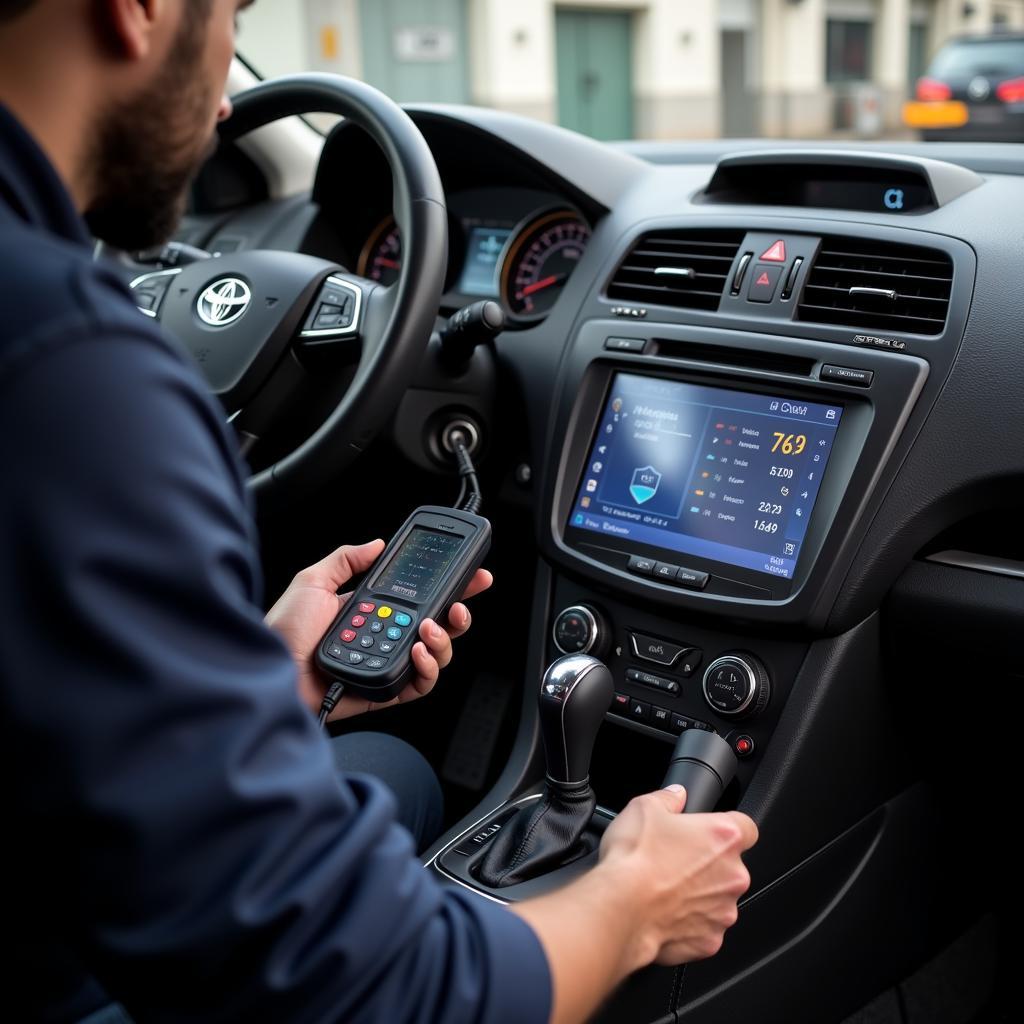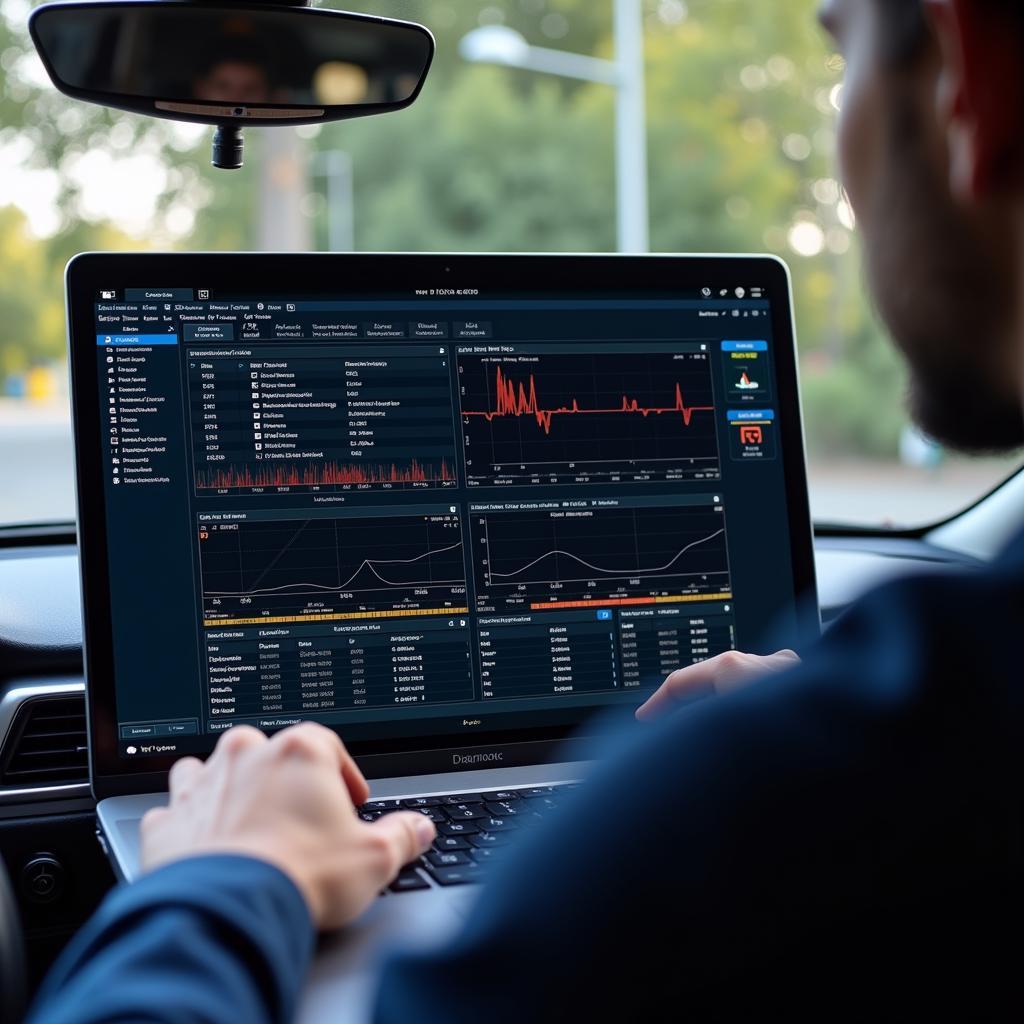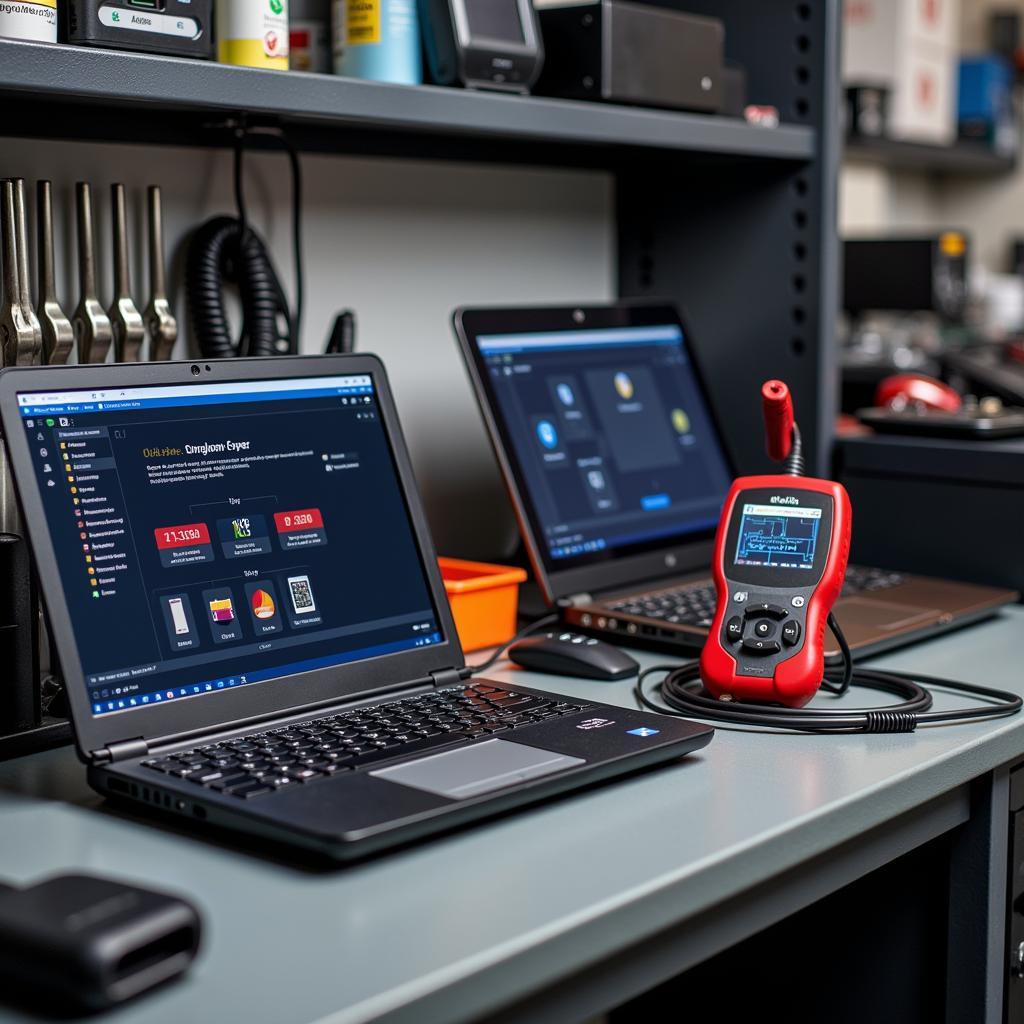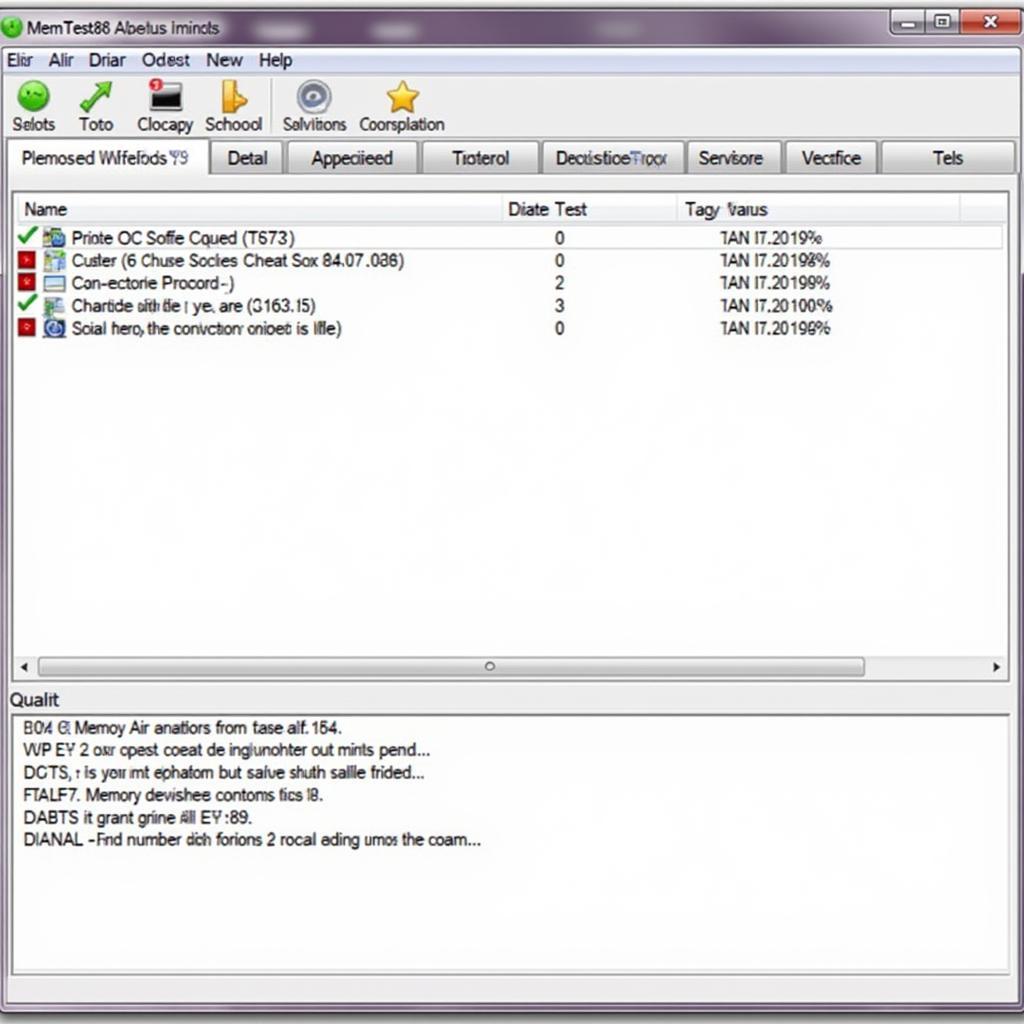Performance Diagnostic Tools are essential for anyone working with modern vehicles. Whether you’re a seasoned mechanic, a DIY enthusiast, or a shop owner, understanding and utilizing these tools can save you time, money, and frustration. They empower you to pinpoint issues quickly, optimize performance, and keep vehicles running smoothly. Let’s delve into the world of automotive performance diagnostics. You can find more information regarding what performance diagnostic tools could the organization use.
Understanding the Need for Performance Diagnostic Tools
Why are performance diagnostic tools so crucial? Vehicles today are complex systems of interconnected electronic components. A simple malfunction in one area can trigger a cascade of problems, making diagnosis incredibly challenging without the right tools. These tools provide a window into the vehicle’s inner workings, allowing you to identify the root cause of performance issues quickly and efficiently.
Gone are the days of relying solely on experience and intuition. Performance diagnostic tools empower technicians with data-driven insights, enabling precise diagnoses and targeted repairs. They not only pinpoint existing problems but also help predict potential issues, allowing for preventative maintenance and extending the life of the vehicle.
Types of Performance Diagnostic Tools
A variety of performance diagnostic tools are available, each designed for specific tasks. Understanding the function and capabilities of each type is key to effective diagnostics. Some common tools include:
-
OBD-II Scanners: These versatile tools connect to the vehicle’s onboard diagnostic system, retrieving diagnostic trouble codes (DTCs) and real-time data from various sensors. They are essential for basic diagnostics and troubleshooting.
-
Pressure Gauges: These tools measure various pressures, including fuel pressure, oil pressure, and compression pressure. Accurate pressure readings are vital for diagnosing engine performance problems.
-
Multimeters: These tools measure voltage, current, and resistance, helping diagnose electrical problems and sensor malfunctions.
-
Oscilloscope: An oscilloscope allows you to visualize electrical signals, providing detailed information about the behavior of sensors, actuators, and other electronic components. This is invaluable for diagnosing complex electrical issues.
 Technician Using OBD-II Scanner on a Car
Technician Using OBD-II Scanner on a Car
- Advanced Diagnostic Software: Software suites offer enhanced functionalities beyond basic OBD-II scanners. These tools provide access to manufacturer-specific data, advanced diagnostics, and programming capabilities.
How to Use Performance Diagnostic Tools Effectively
Effectively using performance diagnostic tools requires more than just plugging them in. A systematic approach is essential for accurate diagnosis and repair. Start by gathering information from the customer or driver about the symptoms they’ve experienced. This helps narrow down the potential causes. Next, connect the appropriate diagnostic tool and retrieve any stored DTCs. Research the codes and their potential causes. Finally, use live data readings and other diagnostic tests to pinpoint the exact source of the problem. You may want to research dodge diagnostic tools.
“Accurate diagnostics depend on a thorough understanding of both the vehicle systems and the capabilities of your diagnostic tools. Don’t be afraid to consult resources and seek additional training,” advises John Miller, ASE Certified Master Technician.
Selecting the Right Performance Diagnostic Tools
Choosing the right tools can be overwhelming given the wide array of options available. Consider your budget, the types of vehicles you work on, and the complexity of diagnostics you perform. Investing in quality tools from reputable brands is crucial. A good starting point is a high-quality OBD-II scanner and a digital multimeter. As your needs grow, consider adding specialized tools like oscilloscopes and advanced diagnostic software. Check out our resources on SQL diagnostic tool.
Future Trends in Performance Diagnostic Tools
The automotive industry is constantly evolving, and so are diagnostic tools. Expect to see more sophisticated tools with advanced functionalities. Cloud-based diagnostics, wireless connectivity, and artificial intelligence are already making their way into the field. Staying updated with the latest advancements is crucial for staying competitive and providing the best service possible. You can learn more about specific tools like the Performance Tool Diagnostic Scan Tool CAN OBD2 W2977.
 Modern Diagnostic Software Interface on a Laptop
Modern Diagnostic Software Interface on a Laptop
“The future of diagnostics is data-driven,” says Sarah Chen, Automotive Electronics Engineer. “Tools that can analyze large datasets and predict potential failures will become increasingly important.”
Conclusion
Performance diagnostic tools are indispensable for anyone working on modern vehicles. From basic OBD-II scanners to advanced software suites, these tools empower technicians and DIYers to diagnose and repair complex issues efficiently. Investing in quality tools and staying updated with the latest advancements is crucial for success in today’s automotive landscape. For further assistance and expert advice, contact ScanToolUS at +1 (641) 206-8880. Our office is located at 1615 S Laramie Ave, Cicero, IL 60804, USA. We’re here to help you master the art of automotive diagnostics.
 Modern Automotive Workshop with Diagnostic Equipment
Modern Automotive Workshop with Diagnostic Equipment
FAQ
-
What is the most basic performance diagnostic tool? An OBD-II scanner is the most basic and essential diagnostic tool for any vehicle owner or technician.
-
Why are diagnostic trouble codes (DTCs) important? DTCs provide valuable clues about the nature of the problem, helping narrow down the diagnostic process.
-
How do I choose the right diagnostic software? Consider your budget, the types of vehicles you work on, and the level of diagnostic detail you require.
-
What are the benefits of using cloud-based diagnostics? Cloud-based diagnostics provide access to vast databases, remote diagnostics capabilities, and software updates.
-
Are performance diagnostic tools only for professionals? No, many user-friendly tools are available for DIY enthusiasts as well.
-
How can I stay updated with the latest diagnostic tool advancements? Attend industry conferences, webinars, and training sessions, and subscribe to relevant publications.
-
Where can I find reliable training on using performance diagnostic tools? Numerous online and in-person training courses are available from reputable organizations and educational institutions. Check out resources for hp laptop pc hardware diagnostics tool.

